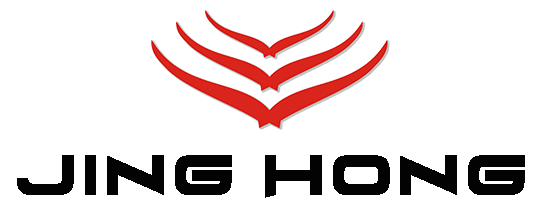One-stop service of R&D, production and sales for 10 years
Leave Your Message
 In today's fast-paced digital world, choosing the right laptop computer is more crucial than ever. With a recent report from Market Research Future projecting the global laptop market to reach approximately $200 billion by 2026, it’s clear that consumers are increasingly reliant on these devices for both personal and professional tasks. Factors such as portability, performance, and price have become central to the decision-making process, with 64% of users prioritizing battery life and 59% emphasizing processing power when selecting a laptop computer. This comprehensive guide aims to equip you with the essential knowledge needed to navigate the multitude of options available in today’s market, ensuring that you can find the perfect laptop computer tailored to your specific needs. Whether you're a student, a gamer, or a remote professional, understanding the key features and trends will enable you to make an informed choice that enhances your productivity and satisfaction.
In today's fast-paced digital world, choosing the right laptop computer is more crucial than ever. With a recent report from Market Research Future projecting the global laptop market to reach approximately $200 billion by 2026, it’s clear that consumers are increasingly reliant on these devices for both personal and professional tasks. Factors such as portability, performance, and price have become central to the decision-making process, with 64% of users prioritizing battery life and 59% emphasizing processing power when selecting a laptop computer. This comprehensive guide aims to equip you with the essential knowledge needed to navigate the multitude of options available in today’s market, ensuring that you can find the perfect laptop computer tailored to your specific needs. Whether you're a student, a gamer, or a remote professional, understanding the key features and trends will enable you to make an informed choice that enhances your productivity and satisfaction.
When choosing a laptop to meet your future needs, it's crucial to consider several key factors. According to a report by the International Data Corporation (IDC), the global demand for laptops is expected to grow by 11% over the next year, emphasizing the importance of making a well-informed choice. One of the primary considerations should be the processor type and speed. For most users, an Intel Core i5 or an AMD Ryzen 5 will provide a perfect balance between performance and efficiency, suitable for everyday tasks while allowing for some future-proofing.
Another critical factor is the laptop’s battery life. A study conducted by Consumer Reports found that laptops with at least 8 hours of battery life have a significant edge, allowing users to work remotely without frequent recharging. Additionally, consider your storage options—solid-state drives (SSDs) are increasingly recommended as they offer faster load times and better durability than traditional hard drives. In fact, the latest data indicates that laptops equipped with SSDs provide a performance boost of up to 300% compared to HDDs, making them an excellent choice for both current and future performance needs.
When choosing a laptop, understanding the different types available is crucial to finding the one that best suits your needs. For students, the ideal laptop is typically lightweight for portability, offers sufficient battery life for long days on campus, and provides enough processing power to handle coursework and research projects. Options like budget-friendly models with solid performance and durability are often recommended, ensuring students can focus on their studies without worrying about their devices breaking the bank.
On the other hand, professionals may require laptops designed for business use, featuring enhanced security options and robust performance to handle demanding applications like video conferencing and data analysis. For those in creative fields, a laptop with a high-resolution display and powerful graphics capabilities might be essential. Regardless of your needs, understanding the specific categories—be it student laptops, business laptops, or creative models—can guide you to make an informed choice that aligns with your lifestyle and requirements.
When selecting a laptop, it's crucial to consider essential specifications that significantly impact your computing experience. According to a recent report by Statista, 53% of laptop users cite performance speed as a key factor in their satisfaction. This indicates that choosing a laptop with an appropriate processor is foundational; Intel’s i5 and i7 series or AMD's Ryzen 5 and 7 provide a balance of power and efficiency suitable for both everyday tasks and demanding applications.
Another critical specification is RAM, which plays a pivotal role in multitasking capabilities. The same report highlights that users with 16GB of RAM reported 40% fewer performance issues compared to those using 8GB. As software continues to evolve, higher RAM allows for smoother operation, especially in creative fields like graphic design and video editing. Additionally, while storage type is often overlooked, SSDs offer much faster data access speeds compared to traditional HDDs, enhancing overall productivity.
Ultimately, understanding the impact of these specifications—CPU, RAM, and storage type—will guide you in selecting a laptop that not only meets but enhances your computing needs.

When it comes to choosing a laptop, future-proofing is essential to ensure your investment lasts several years. The first aspect to consider is the processor. Opt for a laptop with the latest generation of processors—specifically Intel’s i5 or i7 series or AMD’s Ryzen 5 or 7. These processors offer superior speed and efficiency, making them ideal for multitasking and high-demand applications. Additionally, keep an eye on thermal management technology, as it can significantly influence your laptop's performance during prolonged usage.
Another critical factor is the RAM and storage configuration. For future-proofing, aim for at least 16GB of RAM, as this will support advanced applications and help with smooth multitasking. When it comes to storage, choose laptops equipped with SSDs over traditional HDDs. SSDs not only enhance speed and reliability but also tend to last longer in the fast-evolving tech landscape. Lastly, look for essential ports and connectivity options, such as Thunderbolt and USB-C, which will ensure compatibility with upcoming accessories and devices. Investing in these aspects will help secure your laptop's relevance for years to come.
When budgeting for a laptop, it's essential to strike a balance between cost and performance to find the best value for your requirements. According to the latest data from market research firm IDC, the average consumer spends around $700 on a laptop, making it crucial to identify what features are necessary for your specific needs. For example, if you're primarily using the laptop for web browsing and document editing, a mid-range model with an Intel Core i5 or AMD Ryzen 5 processor, 8GB of RAM, and a solid-state drive (SSD) would suffice, typically pricing around $600 to $800.

In contrast, gamers and professionals in creative fields require more robust specifications. A report from Jon Peddie Research indicates that gaming laptops can range from $800 to $2,500, depending on graphics capabilities and processing power. It's advisable for users in this category to allocate their budget for models with dedicated GPUs and higher RAM. Additionally, considering long-term value, the average lifespan of a laptop can be about 4 to 5 years, so investing in quality upfront can lead to cost savings over time.






